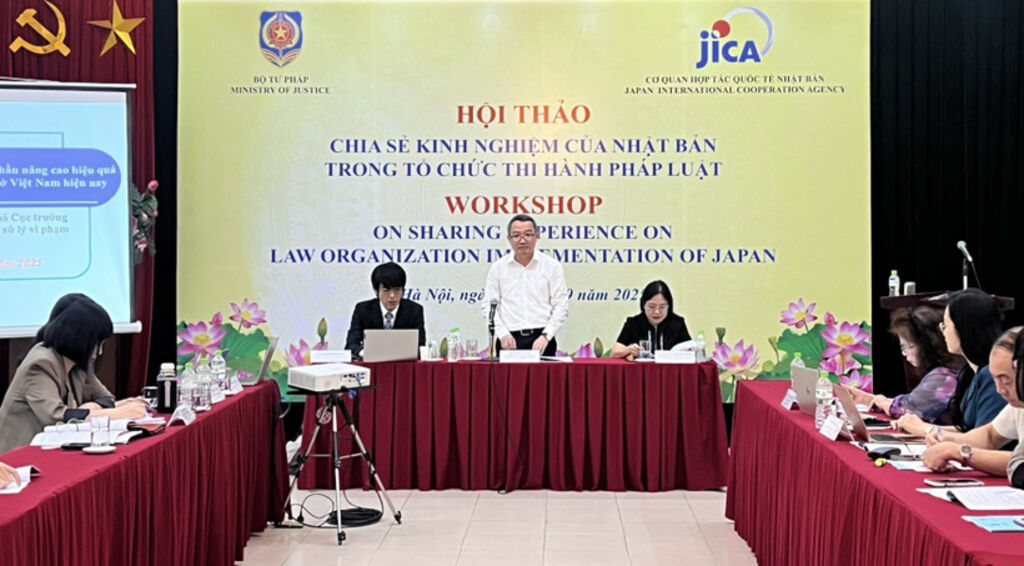 |
| The workshop held by the Ministry of Justice and JICA in Hanoi on September 29__Photo: VNA |
The Ministry of Justice, in collaboration with the Japan International Cooperation Agency (JICA), held a workshop in Hanoi on September 29 to share experience in lawmaking and enforcement.
In his opening remarks, Ho Quang Huy, Director of the ministry’s Department of Examination of Legal Documents and Management of Administrative Penalties, stated that lawmaking and law enforcement are two tasks of special concern to the Party and the State as they play a key role in building a rule-of-law socialist state of the people, by the people, and for the people.
He noted that to date, the political and legal foundations for reforming and improving the effectiveness of law enforcement are relatively comprehensive. The resolutions of the Politburo and the Government outline numerous tasks and measures for making breakthrough in organizing law enforcement to ensure that laws are implemented fairly, stringently, consistently, opportunely, efficiently, and effectively while closely linking lawmaking with law enforcement.
However, Huy also pointed out certain limitations such as delays in issuing detailed regulations, legal dissemination, organizational structure, staffing, and funding for law enforcement activities.
Participants listened to reports on the current situation and proposed solutions to improve the effectiveness of law enforcement in Vietnam today. Japanese experts also presented an overview of key mechanisms related to the interpretation and application of law within the Japanese Government.
Onishi Hiromichi, a long-term expert at JICA Vietnam, explained that in Japan, law enforcement is carried out by ministries and agencies. Ministers, chairpersons of committees, and directors of departments may issue public notices when it is necessary to announce matters within their management scope. They may also issue directives or circulars to agencies, civil servants, and public employees under their authority to give instructions related to the work under their jurisdiction.
According to the expert, policy formulation and evaluation in Japan follow a flexible model that seeks to move away from the notion of “absolute infallibility” in administration.
Japan is experiencing an era of rapid environmental changes driven by strong digital transformation. Social issues are becoming increasingly complex and difficult to predict. However, even under such circumstances, administration must still respond to and solve diverse social issues in a timely and accurate manner, he added.- (VNA/VLLF)









